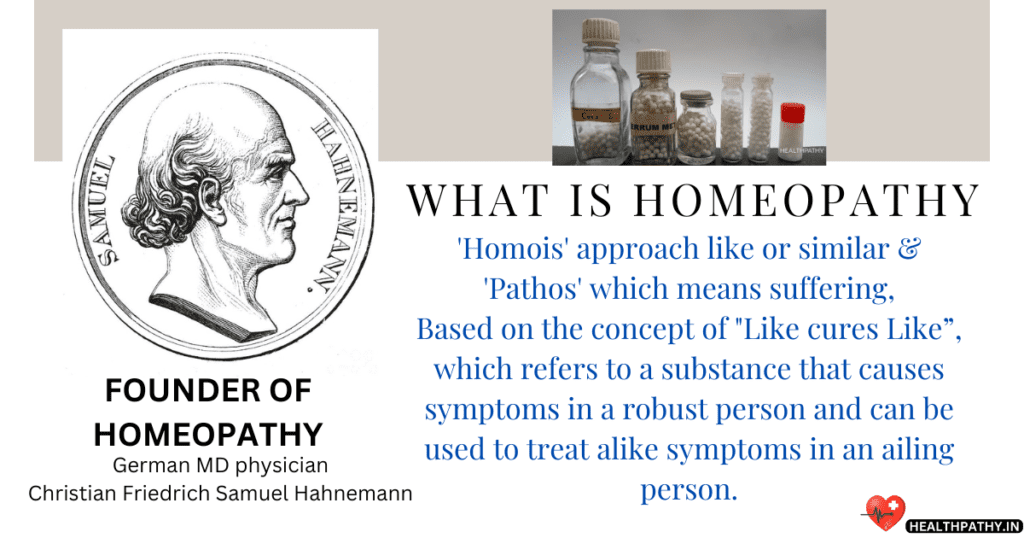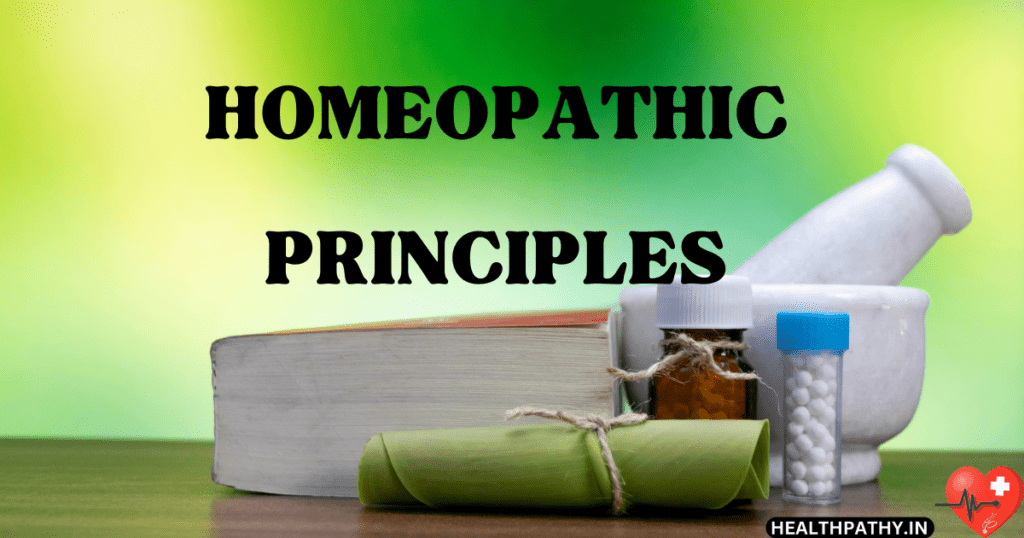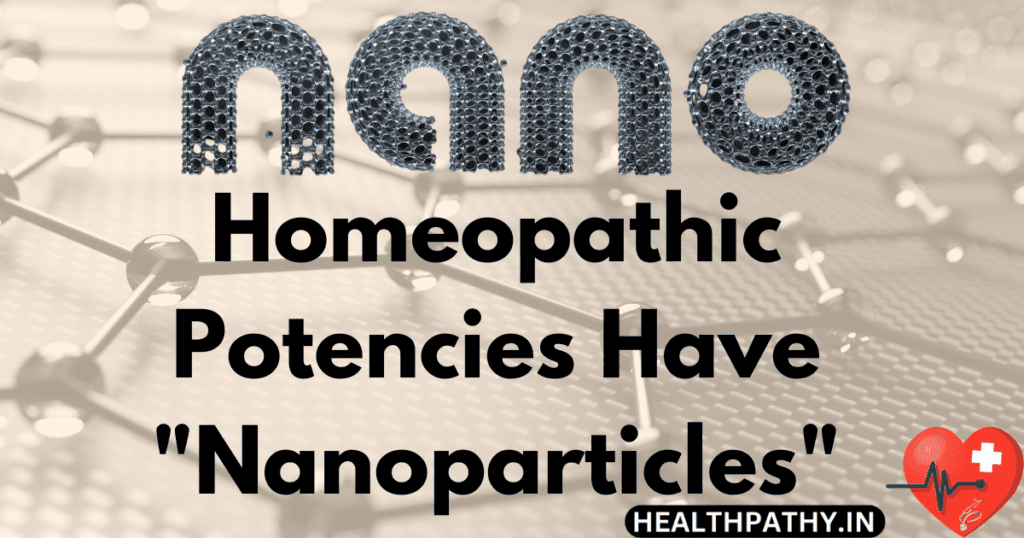Hello, I’m a homeopathic doctor with over two decades of clinical experience, starting my journey in 1997. My passion lies in simplifying complex medical concepts and making them easy for everyone to understand. Join me on this informative adventure where I’ll break down Medical Myths Even Some Homeopathic Doctors Believe in a way that’s relatable and accessible to all. Let’s explore the world of holistic health together!
Myth suggests: a broadly held but false notion, idea, or concept
Fact means: aspects that exist, occur, or prove to be authentic (a truth verifiable from experience or observation).
About homeopathy Myths
Homeopathy is a holistic form of medicine that uses minute doses of incredibly diluted substances to stimulate one’s personal restoration potential. To many, homeopathy seems implausible. They worry it is basically a placebo impact—or worse, a form of deception or quackery. Yet, homeopathy has been around for over 227 years, and it is utilized by millions globally.
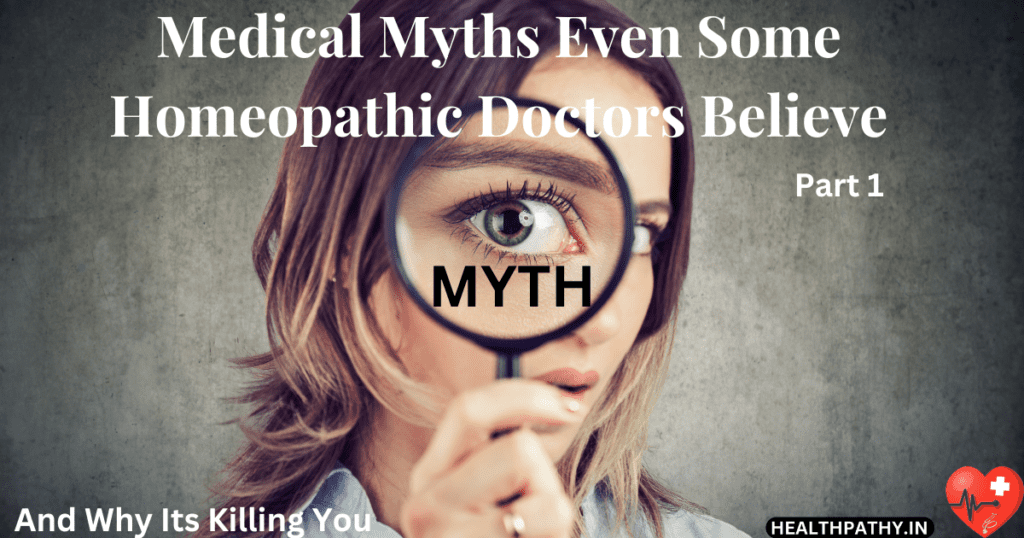

It’s critical to recognize that myths and misconceptions can exist in any discipline, which includes remedies. Homeopathy, like conventional medicinal drugs, isn’t immune to misunderstandings or misinformation. Addressing those myths is vital for promoting correct information and knowledgeable selection-making.
Some commonplace myths about homeopathy include issues about its clinical basis, doubts about its effectiveness, and misconceptions about how treatments are prepared and administered. However, it’s vital to note that homeopathy has a committed following and has been practiced for hundreds of years. While its concepts and mechanisms of motion are debated, many people document high-quality experiences with homeopathic treatments.
To boost the knowledge of homeopathy, ongoing research, transparency about its concepts, and open talk amongst healthcare professionals and the public are crucial. Promoting evidence-based remedies, no matter the therapeutic approach has to be the primary purpose to ensure quality, viable care for sufferers.
Homeopaths across the world have distinctive myths about homeopathy. Myths in any medical faculty are genuinely suggestive of less knowledge about the development and studies of their field.
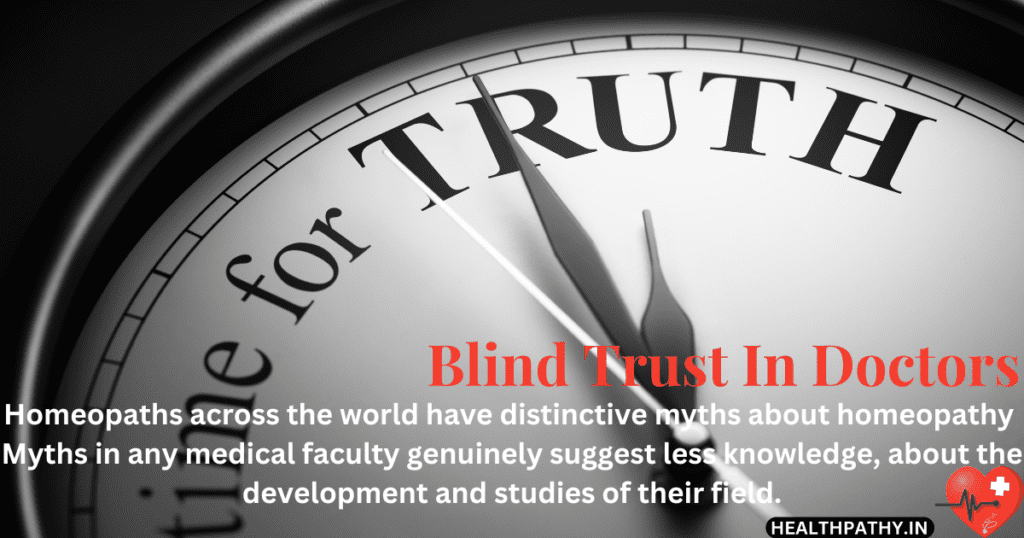

Myths and misconceptions can exist among doctors and healthcare professionals as well. Here are some common myths and misunderstandings that can be found within the medical community and among healthcare professionals as well. Here are some common myths and misunderstandings that can be found within the medical community:
- This myth suggests that homeopathy can cure or remedy any disease as long as the signs and symptoms are healthy, disregarding the restrictions of homeopathy and the desire for other medical interventions in certain cases.
- This myth assumes that any surgical intervention will necessarily result in suppression of the ailment, overlooking the role of surgical procedures in addressing unique pathological situations.
- This myth wrongly assumes that every disease originates totally from emotional or mental factors, neglecting the function of physiological, genetic, environmental, and different elements in ailment development.
- This myth indicates that the lessons within the “Organon of Medicine” by Samuel Hahnemann are unquestionable and unchangeable, overlooking the significance of essential questioning, scientific advancements, and evolving skills in healthcare.
- This myth offers excessive authority to the book “Organon of Medicine” by Samuel Hahnemann, implying that whatever is outside its teachings is invalid, disregarding the advancement of skill and studies in medicine.
- This myth shows that homeopathic remedies, in particular nosodes (Measles, Tuberculosis), can replace vaccines as preventive measures, overlooking the medical consensus on the effectiveness and importance of vaccination.
- This myth shows that addressing mental signs through homeopathy is sufficient to remedy the disease, overlooking the importance of thinking about bodily signs and symptoms in the holistic approach of homeopathy.
- This myth assumes that treatment is only considered correct if it ends in a permanent cure, disregarding the opportunity to cope with and enhance symptoms in persistent situations through ongoing remedy.
- This myth implies that aggravation is always a wonderful sign, overlooking the capacity dangers and the want for individualized assessment of every case.
- This myth implies that any aggravation after repeating a treatment is an effective sign, which may not usually be real and can be misleading in certain instances.
- This myth assumes that aggravation is a vital and steady response to the precise remedy, which won’t usually be the case and can vary depending on character situations.
- This myth promotes the “doctrine of Signature ”, which suggests that the advent or characteristics of a substance suggest its universal law, without spotting its constrained relevance and the want for a comprehensive art of treatments.
- This myth shows that repeating a remedy will cause suppression of signs, overlooking the truth that repetition can be essential and useful in a few instances to support the restoration manner.
- This myth indicates that homeopathy prohibits using nutrients, ORS, intravenous saline, and hormones, dietary supplements, dismissing the potential blessings and appropriateness of these interventions in positive cases.
- This myth promotes the perception that conventional medication (allopathy) is useless or dangerous, overlooking the blessings and appropriate use of conventional treatments in patient conditions.
- This myth claims that a well-chosen constitutional remedy can treat any disease, dismissing the want for individualized and multi-faceted strategies for healthcare.
- This myth indicates that homeopathy has the ability to treat any acute circumstance, dismissing the complexity and severity of acute illnesses, which can require instant scientific intervention.
- This myth exaggerates the capabilities of homeopathy, suggesting that it is able to treat extreme and irreversible conditions (Cerebral palsy, Paralysis, Down syndrome, and Coma), which may not align with the cutting-edge medical understanding of those conditions.
- This myth highlights the distinction between homeopathy and conventional medicine (known as allopathy), spotting their extraordinary procedures, standards, and treatment modalities.
- This announcement implies that homeopathy has no barriers, but the effectiveness of treatment depends on the abilities and understanding of the homeopath, which oversimplifies the complexities of healthcare and the individuality of patients.
- This myth implies that nosodes (homeopathic treatments crafted from disease products) such as Carcinosin and so on should not be repeated, which may not continually be genuine and may vary depending on the man or woman’s case.
- This myth claims that homeopathy can treat all persistent chronic conditions, disregarding the man or woman nature of continual illnesses and the want for personalized and comprehensive treatment procedures.
- This myth means that a skilled homeopath must stick to a single remedy and avoid thinking about alternative options, overlooking the individuality and responsiveness of patients to special treatments.
- This myth promotes the idea that classical homeopathy always entails a single remedy and a single dose, overlooking the need for flexibility and individualized processes in complex instances.
- This myth incorrectly categorizes homeopathy as a religious belief system in place of a healthcare career, overlooking the scientific foundations and clinical practice of homeopathy.
- 26. This myth suggests that homeopathic drugs have a spiritual nature and that homeopathy itself is a spiritual exercise as opposed to a systematic field grounded in concepts of pharmacology and therapeutics.
- This myth implies that homeopathy is the final foolproof type of drug and that in addition research is unnecessary, overlooking the continued medical inquiry and the need for proof-based practices in healthcare.
- This myth of a homeopath undermines the significance of scientific information and medical training/schooling in practicing homeopathy correctly and accurately, dismissing the want for a comprehensive knowledge of fitness, sickness, and therapeutics.
- This myth promotes that every vaccine is very risky, overlooking the full-size proof helping the efficacy and safety of vaccines in stopping infectious diseases.
- This myth suggests that homeopathy rejects the usage of surgical procedures as a treatment, while in fact, homeopathy may be complementary to surgical interventions and help the restoration procedure.
- This myth indicates that development in intellectual, and emotional symptoms by homeopathy suggests the perfect remedy and eventual therapy, over-look the significance of average improvement and considering the complete cure.
- This myth assumes that each symptom cited in materia medica (homeopathic reference books) was thoroughly examined and tested through drug proving, over-look capability inaccuracies or limitations in proving methods.
- This myth shows that a larger variety of rubrics (symptom categories) within the homeopathic repertory shows a superior repertory, overlooking the significance of accuracy, relevance, and clinical utility of rubrics.
- This myth assumes that the presence of precise illnesses (most cancers, paralysis, tumors, etc.) in the homeopathic repertory and metria medica ensures their curability through homeopathy, overlooking the complexity and individuality of those conditions.
- This myth shows that has been believed, even with the aid of a few homeopathic medical doctors, that there are numerous food, time regulations with homeopathic medicines
- This myth shows that homeopathy can treat all cancer, kidney/gallbladder stone, mental retardation, coronary heart blocks, surgical diseases, cataract, hernias, hydroceles, and many others.
- This myth shows that homeopathic medicines do not have any side consequences/effects.
- This myth shows that homeopathic remedies lose their healing strength if touched.
- This myth shows that pain is not a purely physical problem.
- This myth shows that homeopathy medicine can cure surgical conditions and alternative to surgery.
- This myth shows that laboratory investigations and imaging tests are not required for homeopathic treatment as it is based on signs and symptoms only.
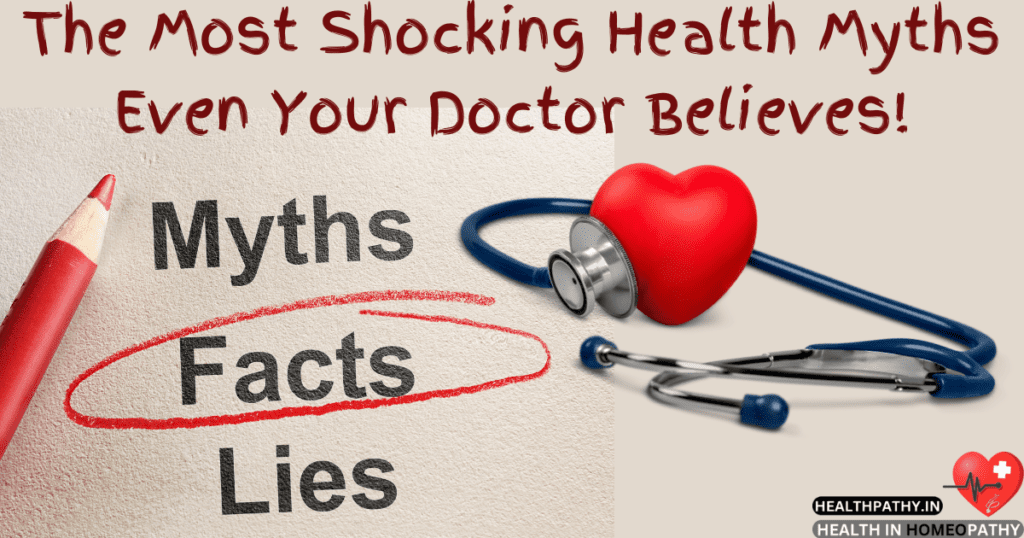

Conclusion
It’s important for doctors and healthcare professionals, like all individuals, to stay updated on medical research and evidence-based practices to avoid perpetuating these myths and providing the best care possible.
Addressing those myths calls for open verbal exchange, schooling, and balanced information on homeopathy’s role in healthcare. Individuals thinking about homeopathic treatment ought to discuss it with healthcare professionals to make knowledgeable choices about their fitness.
Must Read:
Homeopathy Myths And Facts-Part One
Homeopathy Myths And Facts-Part Two
Homeopathy Myths And Facts-Part Three
Friday 09 May 2025 5:11:28:PM
- Acromegaly Cures With Scientifically Proven Homeopathy - 8 February 2024
- Acidity Cures With Scientifically Proven Homeopathy - 1 February 2024
- Appendicitis Cures With Scientifically Proven Homeopathy - 27 January 2024



